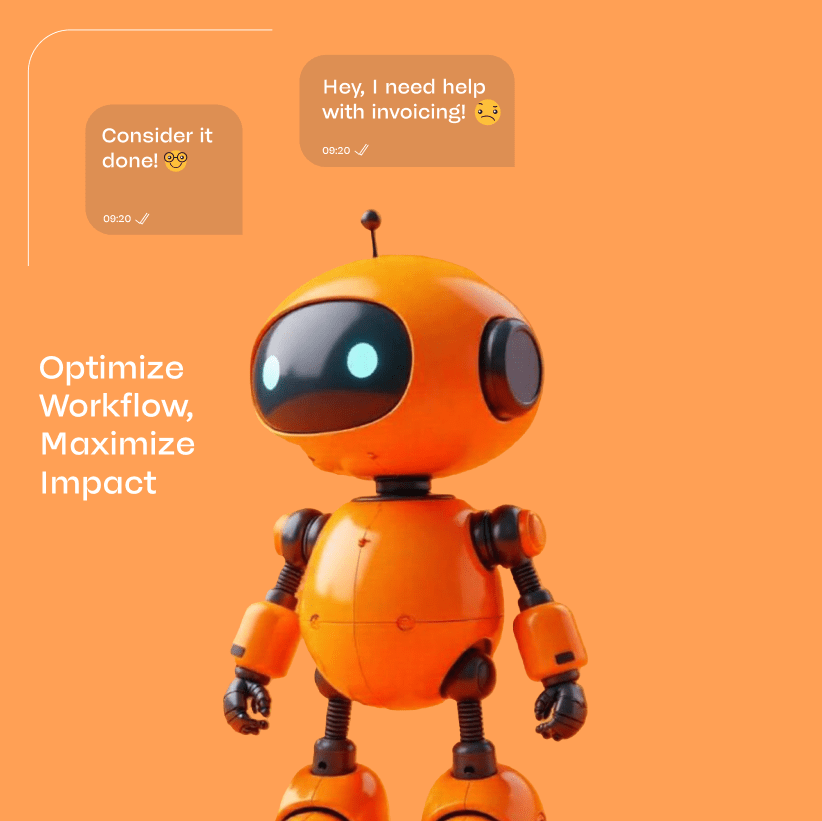Whether you approve of it or not, artificial intelligence is here to stay. As a part of today’s ecosystem, AI tools are becoming increasingly important. If you run an eCommerce business, you are in a position where you need to determine whether AI is right for your business. While many are over-reliant on AI, it can be an incredible time-saver. How can you use AI in the eCommerce industry and make sure it provides benefits?
There are many benefits to implementing an AI-inclusive approach to your eCommerce business. While you want to avoid relying on AI for everything, it can plug the gaps in your productivity. To get the most out of your AI tools, we recommend you focus on implementing AI in eCommerce in the following ways:
How To Use AI In eCommerce Effectively
Some of the best ways to implement AI into your day-to-day eCommerce operations include:
Sales Simplification
One of the most impactful ways that eCommerce businesses benefit from the inclusion of AI is in the sales process. Customers who have questions can input a query into your chatbot support tools powered by platforms like Siri. They then receive a bespoke answer based on their request. Rather than waiting for a customer service representative to respond, they get quick answers.
The same even goes for pointing customers towards what they are looking for. Rather than having to work through numerous search filters to find the right product, many eCommerce websites now use AI-powered questionnaires.
Customers can ask the chatbot, for example, “I am looking for a warm winter jacket in the price range of X,” and the chatbot can collate links to products on-site immediately.
Improved SEO
One of the biggest factors in creating success in the eCommerce industry is visibility. If your website or app is not visible enough, potential buyers will pass you by. One benefit of using AI in eCommerce is that it could provide pinpoint advice on what customers are searching for. Marketing staff can then adjust the keywords that are being used based on AI analysis of what customers search for on-site.
The same goes for the customer-facing side of eCommerce. If a potential shopper views your website/app for a specific product type, AI helps contextualise what they are looking for. For example, they could be looking for a summer hat, which means the AI can help to whittle down the search so that customers only get relevant hats.
Rather than having to sift through every hat type or use filters, AI does the job for them in real time.
Easier Searching
While the days of keyword stuffing are long gone, the internet still feels a little more cumbersome for search purposes. Most people ask for search boxes on eCommerce stores for very natural-sounding queries. However, these queries might not tally up with what your keywords and marketing typically target. As such, many sales searches go unanswered, and shoppers cannot find what they want.
AI in eCommerce allows shoppers to use more natural-sounding dialogue and find a product range that fits their needs. Not only will AI overcome things like typos, but it will also allow for easier review of the search. Synyomns can be automatically included as part of the AI-powered search, broadening the number of products that fit the recommendation.
Users do not always know what they want to ask or search for; AI makes it easier to fill in the blanks and ensure the recommendations feel suitable.

Reduce Abandoned Carts
One of the banes of any eCommerce website is seeing a high number of potential buyers leave items in their carts unpurchased. Given that around 7 in 10 products remain abandoned in shopping carts, doing everything possible to overcome those numbers remains the priority for most eCommerce websites. AI can help with this through the aforementioned smart shopping suggestions listed above.
By understanding what a shopper is looking for, it becomes easier to direct them to the offer that’s best for them. Rather than something that might suit their needs and is less likely to be bought, AI in eCommerce offers greater accuracy. As such, it becomes much easier to reduce abandoned carts and ensure buyers see through their purchases.
Easier Inventory Management
Another crucial service provided by eCommerce AI tools is inventory management simplification. Instead of staff having to check the system when a customer makes a stock query, AI tools can automate this response. That information can then be provided to customers on-site or via push notifications to let them know that X product they viewed only has Y remaining.
While in the past, this was easily set up by a savvy marketing team, AI can now automate much of the process. Customers get immediate insight into products that interest them, while marketing staff can focus on other areas that need specialist insight.

Rapid Content Generation
While content written by a quality writer will always outdo AI, the quality of AI writing continues to improve. Quality, well-written AI writing requires numerous prompts, very specific information, and a hefty amount of editing. However, the same goes for quality content writing: the more information you can offer at the start, the more accurate a writer can be. AI is no different.
The difference is that AI does not need anything like the same time constraints or working hours. AI can be used to create bulk-written product descriptions for new eCommerce products, for example. You can then have your writing and content marketing team edit the content and ensure it feels natural for your website.
By having these well-written bases, your content team has an easier process.
Demand Forecasting
While tools for automating demand forecasting have been in place for some time now, AI takes this to the next level. Improved accuracy in forecast predictions makes it easier for eCommerce stores to avoid inconsistent forecasting. They can use social media trends and in-house market analysis, as well as wider market analysis, to pinpoint where demand might arrive now and in the near future.
The same goes for forecasting new items that might be a good addition to an eCommerce platform. For example, new items might appear as this year’s must-have Christmas gift. AI tools make it easier to spot these trends before they truly blow up. Your store can then get in on the ground floor and have these items advertised before the rest of the competition becomes aware of customer intent.
Better Discounts
Profit is what any eCommerce site exists for, but the scale of competition means companies find it ever more difficult to offer affordable discounts. To get the buyer in the door and buy goods, many eCommerce stores offer backbreaking discounts so they can one-up or undercut a business rival. With AI, it becomes easier to set pricing that is more dynamic and automated than ever before.
While marketing teams often handle this task, eCommerce stores tend to have hundreds of products available. Finding the time to customise the ideal discount price offered on every product would be almost impossible. With AI tools, it becomes much easier to offer discounts that feel generous to the buyer while being affordable for the seller.
Bespoke Targeting
One of the most powerful ways to use eCommerce AI is to target your clientele. Your customers come to your store because they are looking for a certain product or type of product. Many retailers are now using AI to help retarget customers on-site. Creating special offers and deals specific to what customers have just looked at becomes a great way to personalise deals and offers in-house.
In the past, marketing teams focused on the most popular products and then offered specific deals based on what was being sold online. They would also rely on using customer purchase data to send tailored deals to customers based on their purchase history. Now, with AI, we can create bespoke offers for people based on what they browse, not buy. Potential buyers then receive deals created instantly that fit the exact products they were looking at.
Implementing AI Into Your eCommerce Business
Now that you can see the power of AI in eCommerce, it pays to determine how best to implement this feature. The first thing you need is a clear vision: What is your business’s minimum fault? How can AI fill in the gaps and prevent these issues from lingering?
Most of the time, you can answer these queries with the use of data. Look at what the data of your site shows; where are you failing to create the intended results? What shows up as a potential problem you cannot solve in-house?
You might also need to find tailored AI tools, as those available commercially might not be a total fit. As such, you might need to hire a developer to help turn an AI tool around to fit your specific needs. You also need to refine the data that you use to input into your AI tools; you cannot just feed it unfiltered, random data. Working with marketing and data science teams makes that much easier.
Set a budget, too, because AI tools remain quite expensive to invest in. We recommend that you start slowly; do not try to automate every phase of your business process with AI. Work slowly. Use an AI system for one specific problem you face, and see if the results improve accordingly. Slow but certain implementation of AI is likely to be far more effective than trying to turn everything around at once.
With the right AI tools in place, it will become easier to stand out against your competition in the field. Eventually, we expect that AI will play a vital role in creating a more personalised, friendly user experience. Give each AI implementation time to work, and with the right planning beforehand and the right data fed into the system, you should see a tangible difference quickly.







